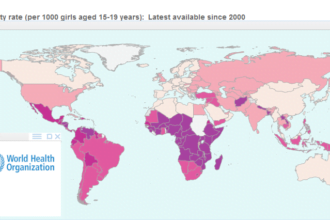This is a joint post with Ursula Giedion.
This is a joint post with Ursula Giedion.
This week the World Health Organization held a major international meeting on universal health coverage (UHC), with Director General Margaret Chan reaffirming her regard for universal coverage “as the single most powerful concept that public health has to offer.” While the term “universal” signals that the entire population will be “covered,” an unanswered question is: covered with what? Another way to put the question: What health benefits or interventions would represent coverage, taking into account UHC’s implicit goals of improved health, equity and financial protection?
Many countries answer this question through the establishment of explicit health benefits plans. Better health benefits plans specify that at least a certain set of services and technologies will be financed and made available, and can sometimes indicate which services or technologies will not be funded and provided. Ideally, the selection of these services and technologies would be based on cost-effectiveness with respect to health outcomes, and would also take equity, financial protection and social values into account. Further, the design and adjustment of the plan would ideally utilize a transparent and fair deliberative process that considers evidence and social values in a systematic way.
By defining the “who” and the “what” more clearly via a benefits plan, many have suggested that an entitlement is created that allows governments and citizens to hold health systems to greater levels accountability and thus impact. There’s an evident gray area in between the positive and the negative list of benefits, but when the counterfactual is pro-wealthy, pro-urban, pro-tertiary public spending as is commonly the case in low- and middle-income countries, adequate funding and provision of at least the basic package for all could represent an improvement for health system outcomes.
In earlier work, we identified at least 63 low- and middle-income countries that use explicit health benefits plans or packages to set the scope of benefits to be provided, and structure at least a portion of public budgets (see here). Initially, we expected that explicit and detailed benefits plans would be found only in health systems relying on health insurance and a clear purchaser/provider split. Yet increasingly, countries with national health systems (public funding, mostly budget-based public provision) are also using or considering adoption of explicit plans.
In the emblematic UK National Health Service (NHS), for example, policymakers and policy experts are debating whether the NHS should move towards defining clearly and explicitly what health benefits will be funded and provided through the system. Health economist Benedict Rumbold writes: “As the purchaser of health services for the British population, the NHS has always had to make hard choices about who is eligible for treatment, what services to cover and what criteria patients need to meet before treatment is administered. Yet recently, there have been extensive debates about who bears responsibility for making these decisions and the basis on which they should be made. These include questions about how the duties of the Secretary of State for Health should be framed, the extent to which the NHS Commissioning Board should intervene in the decisions of local commissioners, and… [whether and to what extent the system is] prepared to sacrifice equity for local autonomy.” And perhaps most interesting, according to a survey fielded by the Nuffield Trust, a health policy think tank, primary care providers in the UK NHS (GPs) overwhelmingly prefer that the NHS define clearly what should be made available for free at the point of service, rather than rely on the implicit rationing strategies currently used (waiting lists, variance in practice from one locality to another, potentially unfair subjectivity at the point of service In deciding who gets what, etc.) (see here).
In a recent paper, Rumbold and Peter Smith set out the pros and cons of an explicit benefits package in the context of this policy debate in the UK. It is well worth a read, particularly as policymakers consider what it really means to “do” UHC. Even in the US, it is a hot topic: the US Office of Management and Budget recently released new regulations on essential health benefits under the Patient Protection and Affordable Care Act soon (see here). I hope they’ll also take a look at our priority setting working group report that describes the achievements and shortcomings of benefits plans in developing countries thus far, and makes recommendations for better support from the global community.
I’ll also be mulling over what it really means to “do” UHC: Should an explicit positive or negative benefits list be a core part of the UHC concept? If so, how detailed should these packages be? How could the international community better support countries in their efforts to move in this direction? I’ll blog my views on this issue in the coming weeks, but would welcome readers’ feedback in the meantime.








